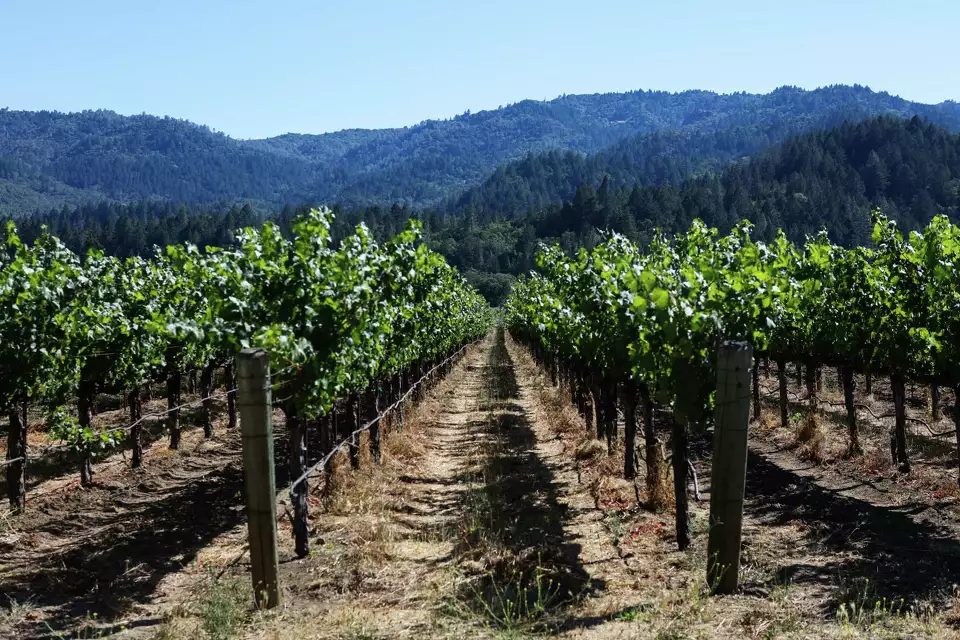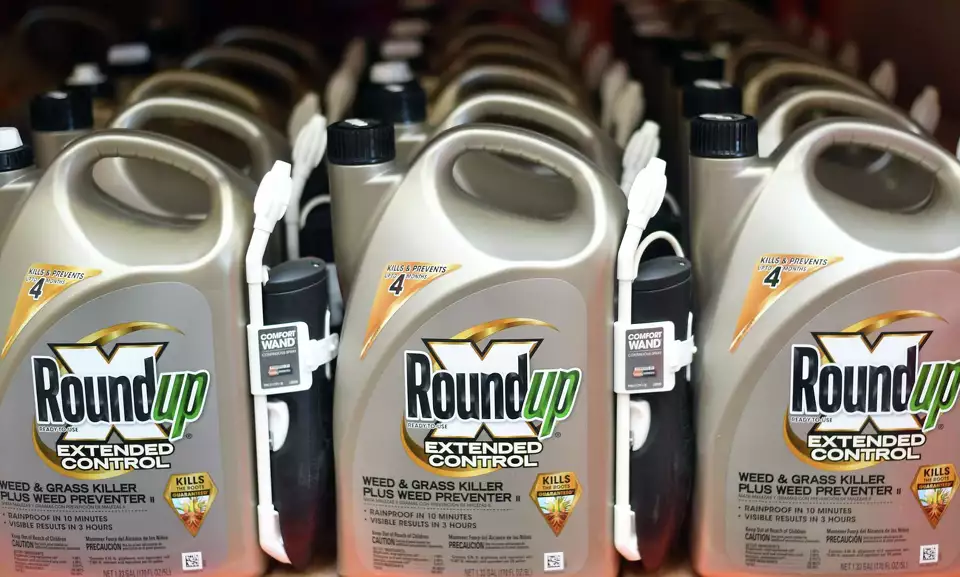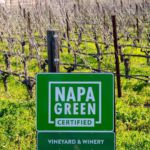
The vineyards at Spottswoode Winery in Napa in 2016. The winery is among a handful of growers that has phased out its use of synthetic herbicides. Gabrielle Lurie/Special to The Chronicle

Roundup products for sale at a hardware store in San Rafael. A Napa nonprofit that ceritfies sustainable wineries hopes to phase out the controversial weed killer. Josh Edelson/AFP via Getty Images
This weed killer is one of Wine Country’s biggest controversies. Can a Napa group phase it out?
- Mario Cortez | sf chronicle |
- November 16, 2023
A first-of-its-kind winegrower sustainability certification program in Napa Valley is changing its rules to require that vineyards eliminate the use of synthetic herbicides.
Napa Green, a nonprofit established in 2004, announced Tuesday it will require members to phase out their use of Monsanto-made weed killer Roundup by 2026, and all other synthetic herbicides by 2028. The program currently has around 90 participating wineries.
“It’s not enough to just ban Roundup, or glyphosate, because alternatives exist,” said Anne Brittain, Napa Green’s executive director.
The move makes Napa Green the first of about 20 sustainable winegrowing certification programs worldwide to phase out synthetic herbicides. It also represents a change in position for Napa Green. Last year, Brittain told the San Francisco Chronicle that she feared banning Roundup would alienate growers.
Glyphosate, the active ingredient in Roundup, has been linked to cancers such as non-Hodgkin’s lymphoma with repeat exposure. Because the potent herbicide can be bought at hardware stores for people to use on pesky weeds in their backyards and home gardens, its use isn’t limited to massive agricultural settings.
Still, earlier this month, a federal appeals court ruled that California could not place a Proposition 65 cancer warning label on Roundup. That was because the U.S. Environmental Protection Agency and a state health agency have both concluded that glyphosate is not carcinogenic (although an arm of the World Health Organization previously found that the substance was a probable cause of cancer).
A 2022 Centers for Disease Control and Prevention study found 80% of adults and 87% of children in its sample had traces of glyphosate in their urine, demonstrating how ubiquitous the product’s main active ingredient can be. In wine production, migrant workers and people of color, who largely work as field laborers, are the most commonly exposed to these herbicides .
“Not only does glyphosate get into the water system, but it destroys the biological activity in the soil and in our environment,” said Phil Coturri, whose company, Enterprise Vineyards, manages grape-growing properties in Napa and Sonoma counties. Coturri has been farming without herbicide for over 40 years, instead making use of cultivation tools like tractors, tillers and herds of hungry sheep, among other tactics.
The move makes Napa Green the first of about 20 sustainable winegrowing certification programs worldwide to phase out synthetic herbicides. It also represents a change in position for Napa Green. Last year, Brittain told the San Francisco Chronicle that she feared banning Roundup would alienate growers.
Glyphosate, the active ingredient in Roundup, has been linked to cancers such as non-Hodgkin’s lymphoma with repeat exposure. Because the potent herbicide can be bought at hardware stores for people to use on pesky weeds in their backyards and home gardens, its use isn’t limited to massive agricultural settings.
Still, earlier this month, a federal appeals court ruled that California could not place a Proposition 65 cancer warning label on Roundup. That was because the U.S. Environmental Protection Agency and a state health agency have both concluded that glyphosate is not carcinogenic (although an arm of the World Health Organization previously found that the substance was a probable cause of cancer).
A 2022 Centers for Disease Control and Prevention study found 80% of adults and 87% of children in its sample had traces of glyphosate in their urine, demonstrating how ubiquitous the product’s main active ingredient can be. In wine production, migrant workers and people of color, who largely work as field laborers, are the most commonly exposed to these herbicides .
“Not only does glyphosate get into the water system, but it destroys the biological activity in the soil and in our environment,” said Phil Coturri, whose company, Enterprise Vineyards, manages grape-growing properties in Napa and Sonoma counties. Coturri has been farming without herbicide for over 40 years, instead making use of cultivation tools like tractors, tillers and herds of hungry sheep, among other tactics.
Making the commitment to third party certification takes time and effort, but it is worth it to demonstrate our commitment to the community and to protect our watershed, our land and the air we breathe.
- Susan Boswell, Chateau Boswell Winery


